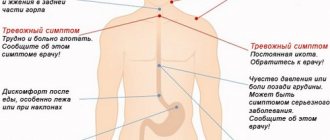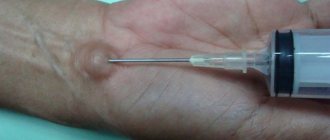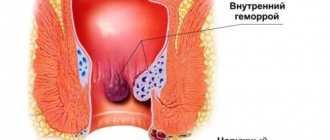Diverticulitis: sudden pain in the left lower abdomen
Unpleasant burning sensations in the lower abdominal region are accompanied by painful sensations that can occur in people regardless of gender and age as a result of diseases of various types.
Painful symptoms may vary in nature and severity. Thus, the pain can be strong, weak, aching, prolonged, dull, sharp, but in any case, the appearance of a pain syndrome indicates diseases and various pathologies. A burning sensation in the lower abdomen may indicate diseases such as:
- appendicitis;
- Crohn's disease;
- diseases of the genitourinary system (cystitis, urethritis, pyelonephritis, prostatitis);
- ectopic pregnancy, endometriosis, ovarian cyst, rupture of ovarian follicle, neoplasms;
- congestive processes in the pelvic organs;
- shingles.
The main symptoms are nausea, belching, a sharp increase in temperature, dryness, heaviness and an unpleasant taste in the mouth. A burning sensation in the lower right part is one of the most obvious symptoms that may indicate inflammation of the appendix of the cecum (appendicitis), therefore, if you suspect appendicitis, you should immediately seek medical help to prevent rupture of the appendix and the development of peritonitis.
Painful sensations in both the right and left sides can also be caused by herpetic ganglionitis (shingles). After a few days, small blisters appear at the site of the burning sensation and are located along the inflamed nerve. In case of improper or untimely treatment, the disease becomes chronic, and the feeling of discomfort may not go away for years.
During an ectopic pregnancy, the burning sensation is paroxysmal, usually in one of the iliac regions, while painful sensations are noted in the legs, lower back and are accompanied by painful, difficult urination and diarrhea.
IBS is irritable bowel syndrome, one of the most common gastrointestinal disorders. The reasons for its development have not yet been fully studied, but researchers believe that it may be due to increased intestinal sensitivity. Abdominal pain that is accompanied by bloating, increased gas production and changes in bowel habits (constipation or diarrhea) are all signs of IBS. Be sure to consult a doctor.
Inflammatory bowel disease (IBD) is a general term for conditions that involve chronic swelling of the digestive tract, namely Crohn's disease and ulcerative colitis. Both of these diseases are accompanied by very similar symptoms, which makes diagnosis very difficult. In any case, if abdominal pain is accompanied by cramping and bleeding, you need to urgently consult a doctor.
Almost every one of us has experienced “harmless” heartburn once in our lives. But if the burning sensation is stronger than usual, and is also accompanied by a bitter taste in the mouth, it may be acid reflux, a condition in which stomach acid enters the esophagus. If this condition is not treated, it can lead to chronic problems with the digestive tract. So you should consult a doctor in time!
One of the most common intestinal diseases in older people is diverticulitis, an inflammation of the small formations lining the walls of the large intestine. If measures are not taken in time, this can lead to intestinal perforation and peritonitis. Symptoms of the disease are nausea, fever, pain in the left lower abdomen, bloating and constipation. Be sure to consult a doctor!
With appendicitis, the pain increases with movement and whenever the patient coughs, sneezes, or takes a deep breath. It is important to remember that this disease is not always accompanied by a high temperature - on the contrary, sometimes it is lowered. It is important to urgently call a doctor to prevent rupture of the appendix and the development of peritonitis.
By the way: 6 signs that you have gastritis and you don’t even know it
Etiology
A burning sensation in the lower abdomen that occurs in women signals the following pathologies:
- cystitis;
- ectopic pregnancy;
- ulcerative colitis;
- herpes zoster;
- the presence of stones in the bladder, kidneys;
- appendicitis.
Also, similar symptoms accompany pregnancy. On days 6-12 after conception, due to the implantation of the egg, discomfort may be felt in the lower abdomen, as well as burning and pain.
In some cases, intense pain in the right lower abdomen indicates cholecystitis and liver cirrhosis. Similar symptoms are observed in men with certain pathologies.
The burning sensation may be accompanied by an increase in body temperature. Inflammation of the lymph node, which is also characterized by discomfort in the lower abdomen, is accompanied by an increase in the size of the node, as well as swelling and pain.
If you detect a suspicious symptom, you should consult a doctor to avoid undesirable consequences. You should not treat yourself.
A burning sensation in the abdominal area can be caused by a wide variety of reasons, which are most often associated with disruption of the functioning of the gastrointestinal tract. In addition, external ailments can be sources:
- genitourinary system;
- skin;
- of cardio-vascular system;
- nervous system.
In addition, this manifestation is often expressed during pregnancy. Such a manifestation, depending on the etiological factor, can be localized both in the upper and lower parts of the anterior wall of the abdominal cavity.
Endometriosis is a possible cause of burning in the lower abdomen
In cases of burning sensations in the abdomen during pregnancy, the sources may differ depending on the period of intrauterine development of the fetus it appeared. For example, in the first trimester, this may indicate an abnormal pregnancy, i.e. the development of a fertilized egg outside the uterus. In the second trimester, symptoms are usually explained by stretching of the abdominal muscles, but the possibility of miscarriage cannot be ruled out. In the last trimester, such a manifestation indicates the beginning of labor.
In addition, a burning sensation in the abdomen, both below and above, is caused by:
- uncontrolled use of medications, in particular antibacterial substances, analgesics, anti-inflammatory non-steroidal drugs and hormonal drugs;
- prolonged exposure to stressful situations;
- poor nutrition, namely consumption of excessively cold or extremely hot foods;
- helminthic infestation;
- long-term addiction to bad habits.
It is advisable to apply all of the above etiological factors to both adults and children, with the exception of a burning sensation in the lower abdomen during pregnancy.
How to identify the problem diagnostically
A burning sensation in the abdomen can occur due to various reasons. There is often a connection with disruptions in the gastrointestinal tract. Also, the basis for the appearance of a burning sensation can be diseases of the genitourinary, cardiovascular, nervous system, and skin. A burning sensation in the abdomen is a common occurrence during pregnancy. It can be felt in different areas of the peritoneum. A burning sensation in the lower abdomen in women and men is caused by:
- Crohn's disease;
- cystitis, urethritis, pyelonephritis, prostatitis, pathological changes in the condition of the genitourinary system;
- stagnant processes in the body, malignant/benign neoplasms in the pelvis;
- herpes zoster;
- nonspecific ulcerative colitis;
- urolithiasis, the appearance of stones in the ureters;
- esophagitis.
If we talk only about women, then a burning sensation in the lower abdomen can be caused by:
- ectopic pregnancy;
- endometriosis;
- formation of cysts in the ovaries;
- ruptures of ovarian follicles.
The sources of burning in the lower abdomen during pregnancy may vary depending on the period of fetal development. In the first trimester, such sensations may indicate an abnormal pregnancy (development of the fertilized egg outside the uterus). In the second - about stretching of the abdominal muscles, but do not exclude the possibility of pregnancy failure, in the last - about the beginning of labor.
To identify the cause of a burning sensation in the lower abdomen, an integrated approach is needed. If the main symptom is present, then you should seek the help of a gastroenterologist. Often the problem lies in gastrointestinal diseases. Doctor:
- studies the medical history of the person seeking help;
- forms a life history - information about medications and nutrition;
- carries out an examination by palpating the anterior wall of the abdominal cavity, measuring temperature, pressure, pulse rate, and finds other external manifestations;
- interviews the patient to determine the severity of the burning sensation and the presence of additional symptoms.
Laboratory-instrumental diagnostics consists of blood analysis and biochemistry, general urine analysis, microscopic examination of the composition of feces, a breath test (determining the presence of the Helicobacter pylori bacterium), ultrasound of the abdominal cavity, FEGDS, CT, MRI, X-ray, gastroscopic examination. If the cause of a burning sensation in the abdomen is based on problems with other organs, then after an initial examination the patient is sent for examination to a cardiologist, pulmonologist, neurologist, dermatologist, pediatrician, and for women - to an obstetrician-gynecologist.
It will be possible to completely get rid of a burning sensation in the abdomen after removing the pathological etiological factor. Treatment to relieve only the unpleasant sensation may include:
- taking enzyme substances, antacids, enveloping, antimicrobial drugs;
- physiotherapeutic measures;
- diet therapy, which excludes the intake of fatty, spicy foods, pickles, marinades, smoked meats, canned food, baked goods, sweets, coffee, alcoholic and carbonated drinks. It is important not to eat very hot or very cold;
- use of traditional medicine advice;
- therapeutic massage, exercise therapy;
- the issue of surgical intervention is considered personally.
A burning sensation in the abdomen is a common symptom that largely characterizes the presence of a certain disease in a person. Often this sign means the development of digestive pathology.
But, this also indicates ailments of other organs of the internal system. A burning sensation in the abdomen occurs with additional nausea. The patient often develops a fever. It is necessary to understand the cause of the burning sensation in the stomach. To do this, you need to go to the doctor and get examined.
Symptoms
In addition to a burning sensation in the abdomen, completely different symptoms can be observed. It helps to establish an accurate clinical picture of the disease itself that has arisen in the body.
When the disease is provoked by the development of a gastroenterological disease, the following ailments are typical:
- severe pain, bloated stomach;
- increased gas formation;
- constipation;
- the patient often feels sick
- diarrhea.
Quite often, a burning sensation in the abdomen on the right side occurs due to the development of the appendix. Then the following symptoms are characteristic:
- nausea, with constant vomiting;
- dry mouth;
- rapid increase in body temperature;
- abdominal pain in the area below the navel;
- the walls of the abdominal cavity tense.
- In other diseases, burning in the abdomen is accompanied by such symptoms as:
- rash on the skin;
- change of mood;
- increase or decrease in blood pressure;
- increased heart rate;
- heat;
- chills;
- pain in the lower abdomen when walking;
- itching;
- insomnia.
These symptoms are the basis of the clinical picture of burning in the abdomen. And they vary depending on the disease itself, and in a particular case will be individual.
The manifestation of malaise immediately after eating food means the presence of a peptic ulcer.
Without proper treatment for a burning sensation in the abdomen, the gastrointestinal tract may be perforated and all its contents may enter the abdominal cavity. Burning in the stomach, belching, heartburn - this is a diaphragmatic hernia.
Signs of a burning sensation in the abdomen appear due to the protrusion of the stomach into the chest organ. This occurs through a hole that exists in the diaphragm.
When there is a burning sensation in the abdomen after eating food, and creates discomfort with any movement, then this is a disease - esophagitis. It develops due to inflammation of the digestive system. The reason for its manifestation is a decrease in sphincter functions. That is, acid enters the gastrointestinal tract. It causes a disruption in the functioning of the system and a burning sensation in the stomach.
With an incorrect lifestyle, chronic gastritis occurs. The cause of the disease is poor nutrition, abuse of alcohol-containing drinks, and low mobility.
The disease also develops due to long-term use of antibiotics, which adversely affect the gastric mucosa.
After eating, there is a burning sensation in the stomach, nausea, and heaviness. This indicates the development of acute gastritis. It occurs due to the ingestion of low-quality food or toxic substances into the body.
A burning sensation in the abdomen that occurs in the upper part can be the cause of diseases such as pancreatitis, pneumonia, pre-heart attack, problems with the spleen, neuralgia, cancerous tumors, and intestinal infections.
The symptom appears in the following cases:
- with cystitis or colitis;
- irritable bowel syndrome;
- ectopic pregnancy;
- shingles;
- stones in the urinary system;
- when the follicle ruptures.
A burning sensation in the abdomen during an ectopic pregnancy is characterized by paroxysmal manifestations of symptoms. Pain appears in the legs, lumbar region, and problems arise in the rectum. All these signs are accompanied by false signs of emptying at the time of burning in the abdomen.
With appendicitis, the patient not only experiences a burning sensation in the abdomen, but also other ailments. These are fever, attacks of nausea, dry mouth, pain in the right side. When diagnosed, changes in the composition of the blood are observed. Removal of the inflammatory appendix is urgently required; any delay poses a threat to human life and health.
An inflammatory disease in the urinary system is accompanied by a burning sensation in the abdomen and pain. The patient also experiences a feeling of heat. Ailments occur during bowel movements, and there is also an admixture of blood clots in the urine. The patient's temperature rises and there is a constant urge to urinate.
Manifestation of lichen
With this disease, pain occurs on the left or right side of the abdomen. An inflammatory process occurs in the body, which is caused by herpetic ganglionitis. The infection inflames all the nerve endings of the internal soft tissues.
For this reason, a rash appears on the skin, which is accompanied by itching. A burning sensation in the abdomen begins a few days after infection. Rashes in the form of blisters appear on the skin at the site of the burning sensation. They only protrude from the affected nerve ending.
The midline of the body remains normal and is not subject to rash.
Shingles must be treated comprehensively. In the absence of proper therapy, the symptoms of a burning sensation in the abdomen will not disappear and will accompany the patient throughout the entire period of the disease.
During pregnancy, women's hormonal levels change. The body needs to adapt to carrying an embryo, and also prepare for labor. Internal organs begin to change their usual functions, especially the gastrointestinal tract.
Peristalsis in the intestines decreases, and this is characterized by a burning sensation in the abdomen. In the last trimester, the fetus increases significantly in size, which causes pressure on the organs.
This is where an uncomfortable state arises, dysbacteriosis, diarrhea, and constipation appear.
You can normalize your health by eliminating heavy foods from your diet at the time of a burning sensation in the stomach. You also need to follow a daily routine, avoid fried and highly salted foods, and drink more fluids. Itching and burning in the abdomen occur due to stretching of the skin and an increase in the size of the uterus.
When the bottom burns and discharge appears with a pinkish tint, you urgently need to seek medical help. This is a sign of miscarriage, which poses a threat to the life of the mother and the unborn baby.
Stomach pain may be due to:
- nervous tension;
- helminthic infestation;
- increased sensitivity of the esophagus;
- aneurysm;
- gastroparesis.
Chronic stress negatively affects the internal systems of the body. It can reduce or stop the functioning of the stomach during the period of burning in the abdomen. It ceases to perform its usual functions, and food processing is suspended.
For this reason, appetite decreases sharply, and the patient does not feel a bout of hunger for a long time. Against the background of this condition, there is a decrease in body weight and a burning sensation in the abdomen. With such an illness, the patient needs competent therapy.
Diagnostics
Since burning in the abdomen has a very wide range of possible causes, diagnosis and treatment of pathologies associated with this symptomatology requires the participation of many specialists: gastroenterologist, urologist, gynecologist, oncologist, surgeon, neurologist. Diagnosis involves a sequential series of procedures:
- External examination and palpation of the abdominal cavity to clarify the localization of pain.
- Blood and urine tests to identify inflammatory processes in the body and differentiate pathology.
- Consultations with specialized specialists: gastroenterologist, urologist, gynecologist, oncologist, surgeon, neurologist.
- Instrumental examination of the abdominal organs: fluoroscopic and ultrasound examination, magnetic resonance and computed tomography.
- If pathology of the intestines and/or stomach is suspected, intracavitary examinations of these organs are carried out - fibrogastroscopy and colonoscopy - using a special parting - an endoscope with a miniature video camera at the end, which allows the doctor to see their condition from the inside on the monitor screen.
To establish the cause of a burning sensation in the left lower abdomen or any other location, particularly in pregnant women, an integrated approach is required.
If the main symptom occurs, you should seek help from a gastroenterologist, because most often it is a consequence of gastrointestinal diseases. First of all, the doctor must:
- study the patient's medical history;
- collect the patient’s life history – this includes information regarding the medications used and the person’s diet;
- conduct a thorough physical examination aimed at palpating the anterior wall of the abdominal cavity, measuring temperature, blood pressure and pulse, as well as identifying other external symptoms;
- interview the patient in detail to determine the severity of the burning sensation below the navel or in another area of the abdomen, and the presence of additional symptoms.
Laboratory and instrumental diagnostics include:
- general clinical blood test;
- blood biochemistry;
- general urine analysis;
- microscopic examination of feces;
- breath test - to detect the presence of the bacterium Helicobacter pylori in the body;
- Ultrasound of the abdominal cavity and FEGDS;
- CT and MRI;
- radiography and gastroscopy.
Breath test for Helicobacter pylori
Other probable causes
A burning sensation in the right side appears due to:
- inflammation of the appendage of the cecum;
- the appearance of irritable bowel syndrome;
- psychogenic disorders.
The reasons for the appearance of a burning sensation in the upper abdomen in men, women, and children may be as follows:
- cholecystitis, pancreatitis (unpleasant sensations in the area above the navel);
- ulcer of the duodenum or stomach (after eating);
- formation of a diaphragmatic hernia (felt above the navel);
- inflammatory processes in the intestines;
- muscle inflammation of the abdomen (myositis);
- metabolic disorders;
- pathological changes in the condition of the spleen;
- acute pleurisy or myocardial infarction;
- inflammation of the lower pulmonary region;
- aortic aneurysm, ischemic disease;
- intercostal neuralgia;
- late stages of pregnancy (often in the upper abdomen, sometimes in the lower;
- harmful effects of the bacterium Helicobacter pylori.
Also, a burning sensation in the abdomen in any area can appear due to uncontrolled use of medications (antibacterial, analgesics, non-steroidal anti-inflammatory, hormone-containing), prolonged exposure to stress, poor nutrition (eating very cold or hot foods), infection with worms, and poor lifestyle choices. These factors apply to people of any age. An exception is the burning sensation in the lower abdomen that occurs in pregnant women.
The occurrence of burning sensation during pregnancy
During pregnancy, women's hormonal levels change. The body needs to adapt to carrying an embryo, and also prepare for labor. Internal organs begin to change their usual functions, especially the gastrointestinal tract. Peristalsis in the intestines decreases, and this is characterized by a burning sensation in the abdomen. In the last trimester, the fetus increases significantly in size, which causes pressure on the organs. This is where an uncomfortable state arises, dysbacteriosis, diarrhea, and constipation appear.
By what manifestations is it recognized?
Regardless of the location of the pain, the main symptom comes first. However, he is not alone in the development of the disease. Since the causes often lie in gastroenterological problems, the most common symptoms are nausea, vomiting (sometimes with the presence of blood), belching, heartburn, disruption of the bowel movement (diarrhea or constipation), decreased desire to eat or complete refusal of food, pain sensations in the stomach, bloating, gas, burning sensation in the chest. Often, a burning sensation in the lower abdomen on the right side occurs due to appendicitis, its signs:
- soreness in the area below the navel;
- nausea, vomiting;
- increase in body temperature;
- dry mouth;
- muscle tension of the peritoneum.
When a burning sensation appears in the lower abdomen due to other diseases, the following symptoms often occur:
- severe itching of the skin;
- frequent, painful urge to urinate;
- pain in the abdomen, perineum, which becomes more noticeable when walking;
- chills, fever;
- skin rashes;
- pressure surges;
- constant mood changes;
- sleep problems.
Basic clinical signs that occur in the presence of the main symptom are presented. Each individual person has their own symptomatic picture.
Additional symptoms
A burning sensation in the abdomen is a sign of many serious (and not so serious) problems. To determine the degree of risk, you need to pay attention to additional symptoms.
Often, a burning sensation in the stomach or intestines is accompanied by constant belching, an unpleasant taste in the mouth, incorrect determination of the taste of foods, severe pain radiating to various parts of the body, vomiting and nausea. These are the most well-known symptoms that accompany the burning sensation. They most likely signal an acute stage of gastritis, pancreatitis or another disease of the gastrointestinal tract.
If there is severe discomfort in the abdominal cavity, the pain becomes simply unbearable and plus a high temperature rises, the condition indicates that you need to consult a doctor immediately. Such signals indicate the development of a strong inflammatory process, and this is already very dangerous and can threaten the patient’s life. For example, this is how a complication of appendicitis can manifest itself, that is, peritonitis can develop. This problem needs to be resolved quickly.
Preventive measures, prognosis
To avoid the manifestation of the basic symptom, you need to adhere to general preventive measures:
- to refuse from bad habits;
- eat in a timely manner;
- take medications as prescribed by a doctor;
- avoid stressful situations;
- constantly undergo a full examination at a medical institution.
A burning sensation in the stomach will not harm your health and life. But some of the pathological etiological factors, if left untreated, will become the basis for the development of serious complications. Timely diagnosis is important in order to identify the cause of discomfort.
Treatment
Treatment of irritable bowel syndrome, which causes burning, largely depends on the symptoms accompanying the disease.
- For irritable bowel syndrome, it is recommended to take sedatives at home, such as tincture of valerian, motherwort, peony, etc.
- You can use decoctions of injuries. Moreover, you need to follow a special diet
- If you have diarrhea and gas, you should exclude all foods that stimulate bowel function.
- For constipation, on the contrary, they use laxatives and adhere to a certain diet.
If you cannot cope with the disease on your own, then medical assistance is needed, including taking medications, some physical procedures, therapeutic massage, etc.
For Crohn's disease, treatment therapy is aimed at eliminating symptoms and alleviating the general condition of the patient. Most often prescribed:
- Anti-inflammatory drugs
- Corticosteroids
- Antibiotics
- In more severe situations, when complications occur, surgical intervention is resorted to. Surgical treatment makes it possible to get rid of the signs of the disease for a long time.
Therapy for dysbiosis, which is accompanied by a burning sensation in the intestines and abdominal cavity, must be comprehensive. The primary task is to restore the microflora of the organ and remove the cause of the disease. In this case, the main drugs are:
- Antibacterial drugs
- Probiotics
- Prebiotics
- Intestinal antiseptics
- Immuno- and biostimulants.
In addition, great importance is given to a special diet containing a large amount of vegetables and fruits, fermented milk products, etc.
When diagnosed with appendicitis or peritonitis, the only correct method of treatment is timely surgical intervention. Moreover, with severe burning and pain in the intestines, you can take antispasmodics. For chronic ailments, some physiotherapy, therapeutic exercises, etc. are indicated.
In this situation, there is nothing you can do to help yourself. It is necessary to consult a doctor as soon as possible, because if we are talking about purulent inflammation, it can be fatal.
Therapy methods
Conservative treatment for gastritis and stomach ulcers involves taking antacids (Amalgel, Phosphalugel, Rennie), enzymes (Festal, Mezim, Creon, Pancreatin), antispasmodics (Papaverine or No-shpa), blockers of acid formation in the stomach (Omeprazole, Rebeprozole, Esomeprazole) , histamine blockers to reduce acidity levels (Ranitidine, Famotidine), prokinetics to stimulate the gastrointestinal tract and facilitate food absorption (Domperidone, Motilium, Motilak). Inflammatory processes in the genitourinary system are relieved with the help of antibiotics.
The course of therapy also includes:
- consumption of herbal teas - linden, chamomile, rosehip, with plantain or St. John's wort;
- adherence to a diet - refusal of fatty, spicy, smoked and fried foods, sweets and flour, alcohol, canned food;
- physiotherapy;
- therapeutic massage and exercise therapy.
There are also folk remedies for relieving a burning sensation in the stomach. For this purpose it is recommended:
- drink a soda solution (dilute ½ level teaspoon of soda in a glass of warm water), milk or mineral water, potato juice (from one tablespoon to half a glass);
- chew horse sorrel if the burning bothers you at night;
- chew the calamus root pulp thoroughly and then swallow it;
- take a pinch of dry crushed buckwheat.
In some cases - with appendicitis, urolithiasis, prostate adenoma and other pathologies - the only way to correct the situation is surgery. It is important not to waste time to avoid serious complications.
Symptoms
Regardless of whether the burning sensation occurs in the left side of the abdomen or in the right, the main symptom will often be the first, but not the only one in the clinical picture.
Symptoms of appendicitis
Patients should take into account that the above are only the main clinical signs that appear in men, women and children against the background of the main symptom. In each specific case, the symptomatic picture will be individual.











